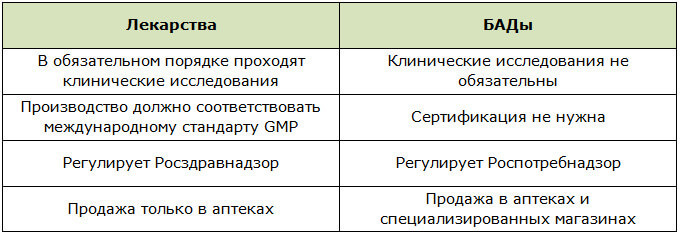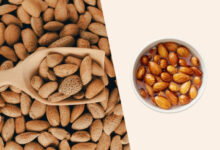Almost a hundred years ago, in 1927, American chemist Carl Rehnborg created the first biologically active food additive. It contained several vitamins and microelements, as well as extracts of parsley and alfalfa. It was intended to improve overall health.
In the beginning of the 1990s the market of pharmnutrition was stirred because of a brand new Herbalife formula that promised to help lose extra kilos fast and without harm to health. Since then, dietary supplements for weight loss became incredibly popular, their sales rise from year to year despite all the negative information about them from official medicine and the scandal connected to prohibited and toxic substances included in their composition.

So, what are thay actually — a miracle of the 21st century that allows you to get slim without diets and sports or a mystery that has the real info well hidden? Let’s find out!
Peculiarities
Visually, weight loss dietary supplements are almost indistinguishable from drugstore medicines and many people make no difference between them. Actually, there is a huge gap between them. The difference is clearly demonstrated in the table below.

At the legislative level:

Dietary supplements could be attributed to modern health technologies, but it is necessary to toughen the requirements to their quality and safety. Unfortunately, many dishonest manufacturers include harmful and even toxic substances into their composition. This automatically excludes a few items from the above mentioned table: the risk of complications increases, a list of contraindications appears and overdose is possible.
Effect
Depending on the composition, dietary supplements help lose weight in different ways. So, decide in advance what action of the drug will be best for you.
The most popular ones are fat burners. They contain biologically active substances that destroy adipocytes. However, they are the ones that cause the greatest wave of negativism, as it is believed that dietary supplements can not have such a powerful effect. They are unlikely to be effective without diets and sports.
The second group — appetite suppressants. Their effect is already more pronounced: after their consumption the feeling of hunger dulls. Accordingly, the size of portions automatically decreases, as well as the daily caloric content of the diet. This ensures weight loss. The mechanism of losing weight is clear and understandable to everyone. Yet, there are some pitfalls here: these products affect the satiety center of the brain. In other words, they are psychotropic. Doctors recommend treating such supplements with great caution.
Read about appetite suppressants here.
The third group — diuretics and laxatives. No weight loss dietary supplements are authorized as drugs with such effects because they belong to pharmacology and should be inherent only to medicines. In practice, 90% of dietary supplements for weight loss include plant extracts with such effects, they just don’t advertise them. This is because for the manufacturers removing excess fluid from the body and cleansing the intestines is the easiest way to ensure weight loss, since fat cells are not so easy to burn, and psychotropic drugs require a special permission.
Losing weight due to dietary supplements is also achieved thanks to one “small” trick by the manufacturers that is the main driving force of the whole process. Recommendations like these are often prescribed in application instructions for such drugs:
- Organize your meals at the same time every day;
- Do not eat after 6 pm;
- Exercise;
- Do not drink alcohol or harmful products;
- Drink a lot of pure water.
Thus, the person who loses weight develops the right eating habits. They assure them that without following these recommendations the dietary supplement may turn out to be useless, and they have no choice but to follow the rules of a healthy lifestyle, which is the key to losing weight.
Dietary supplements really turn out to be effective against the background of a balanced diet and workouts.
And almost all dietary supplements promise to start processes in the body that lead to weight loss:
- Improve digestion, due to which all substances received with food are spent on useful energy and are not deposited as fat;
- Normalize metabolism, without a sufficient speed of which losing weight is impossible;
- Restore water balance;
- Provide the body with all the necessary nutrients;
- Sort out the hormonal background;
- Cleanse the body of toxins, waste products, salts of heavy metals and remove fluid.
Classification
In pharmnutrition, all dietary supplements are divided into two groups.
Group 1. Nutraceuticals
The main composition of nutraceutical dietary supplements are vitamins, microelements, peptides, amino acids and food fibers. Their main goal is to normalize the functioning of those organs that take part in the processes of losing and gaining weight. If their work improves, the problem of excess weight is solved.
Examples: Alphabet Diet, Turboslim Express Weight Loss, MegaSlim, Doctor’s Best etc. Most often they are drugstore dietary supplements.
Group 2. Parapharmaceuticals
Such dietary supplements are the majority in the modern market. They contain ingredients of vegetable and animal origin. These are extracts of herbs, seafood (seaweed), essential oils etc. They provide a fast, but not always stable and safe dietary effect.
Examples: Bilait, Guarcibao, Modelform, Turbofit, Mangosteen. These dietary supplements can rarely be found in drugstores, they are sold mainly online.
Truth and myths

There are many myths about weight loss dietary supplements. They can be conditionally divided into two groups. The first group is created by the manufacturers themselves and aims to increase sales. They attribute almost magical properties to the drugs that will help lose 10 kg in 2 days with 100% natural composition (an exaggeration, but it reflects the essence). The second group is the result of scandals that break out from time to time about supplement ingredients that manufacturers hide from the customers and that they cause irreparable damage to health. What should you believe in and what is just a product of unrestrained imagination?
Myth 1. They have no contraindications
Truth. Dietary supplements should be consumed only taking into account your well-being and individual peculiarities of your body. They may contain components that can adversely affect your health in case of overdose or in the presence of certain diseases and conditions. They are strictly prohibited for pregnant women, nursing mothers and children under 18.
Myth 2. They are completely useless
Truth. If a dietary supplement is considered as an integral part of a weight loss program and is consumed against the background of proper nutrition and sufficient physical activity, if it has permission from Rospotrebnadzor (the Russian Federal Service for Surveillance on Consumer Rights Protection and Human Well-being) to be sold specifically as a dietary supplement, it will contribute to weight loss.
Myth 3. They are addictive
Truth. If a supplement has undergone the necessary control by Rospotrebnadzor and is sold not only in specialized stores but also in pharmacies, it does not contain substances that are habit-forming and addictive. All other products may include such ingredients.
Myth 4. They are 100



